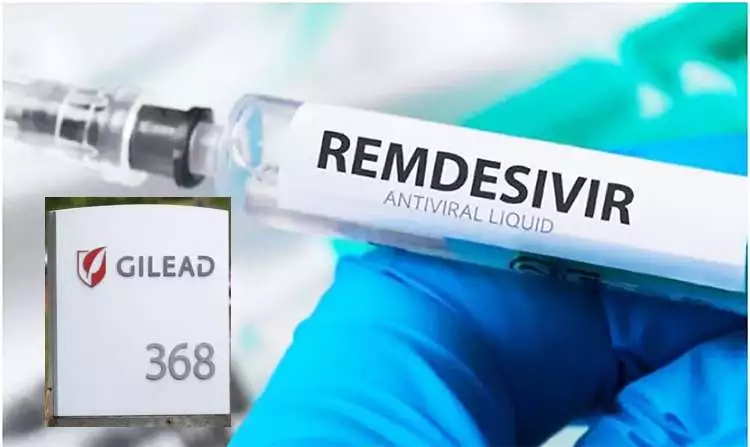Experimental drug was tested in Ebola patients but had never been proven as a treatment for other diseases
The Food and Drug Administration on Friday granted an emergency use authorization to Gilead Sciences Inc.’s remdesivir, a decade-old experimental therapy first tested on Ebola disease patients, as a COVID-19 treatment.
President Donald Trump announced the news just as the markets closed Friday afternoon at the White House. The authorization means that the drug can be used by hospitalized patients with suspected or laboratory-confirmed cases of COVID-19 outside of clinical trials or on a compassionate use basis.
Gilead Chief Executive Daniel O’Day on Thursday night told investors during an earnings call that talks with the FDA about an emergency use authorization, or EUA, or other formal approval had intensified in the last 48 hours. “There’s a big sense of urgency,” he said, according to a FactSet transcript of the call. “We think the FDA will move quite quickly.”
Shares of Gilead GILD-4.82% moved 1.9% higher in after-hours trading Friday immediately after the announcement. Year-to-date, the company’s stock has gained 23%, hitting a low of $62.23 on Jan. 21 before soaring to a $85.97 high for the year on March 19. It closed Friday at $79.95.
Read: Gilead expects to spend up to $1 billion on coronavirus drug this year, will donate 1.5 million vials
The antiviral drug has been widely considered a front-runner in the rush to find viable treatments for a disease that has sickened more than three million people worldwide and killed at least 220,000, according to data aggregated by Johns Hopkins University. It is the first new drug to get an EUA, a type of authorization that the FDA is using during the pandemic. The regulator in March authorized chloroquine and hydroxychloroquine to be repurposed for some COVID-19 patients though both drugs have previously been approved to treat other diseases, like malaria.
Investors and clinicians have been paying close attention to the snippets of study data about the antiviral drugs, sending the company’s shares up or down depending on the day.
Though experts have had mixed responses to the clinical findings so far, it’s clear that demand is high. There are no proven treatments for infections caused by the coronavirus, making it difficult for the nation’s health-care workers to care for the patients who end up in their emergency rooms and intensive care unit beds.
There’s also an economic angle. The market has been swinging in response to remdesivir data, driven by the investor stance that a proven treatment, even more so than vaccine, would support the prospect of an economic rebound for the U.S., which is thought to be headed for a recession due to the COVID-19 pandemic.
Gilead began developing remdesivir in 2009. It was later tested as a treatment for Ebola, severe acute respiratory syndrome (SARS), and Middle East respiratory syndrome (MERS), among other diseases. The company said it began providing doses of remdesivir to the China Centers for Disease Control and Prevention & Prevention in January when the coronavirus outbreak there began to worsen. By February, the investigational therapy had been moved into a number of clinical trials in the U.S. and abroad, including one conducted by the National Institute of Allergy and Infectious Diseases (NIAID).
That trial has been the one to watch, primarily because it had a placebo arm and two of the Gilead-sponsored trials do not. A preliminary data analysis released this week by the federal research agency found that the drug improved recovery times in COVID-19 patients — the median time to recover in that group of patients was 11 days — compared with 15 days in those patients taking placebo.
Though government officials including President Trump and Dr. Anthony Fauci, the NIAID director, have talked up the results, with Fauci saying remdesivir would become the standard
Discover more from The Source
Subscribe to get the latest posts sent to your email.








